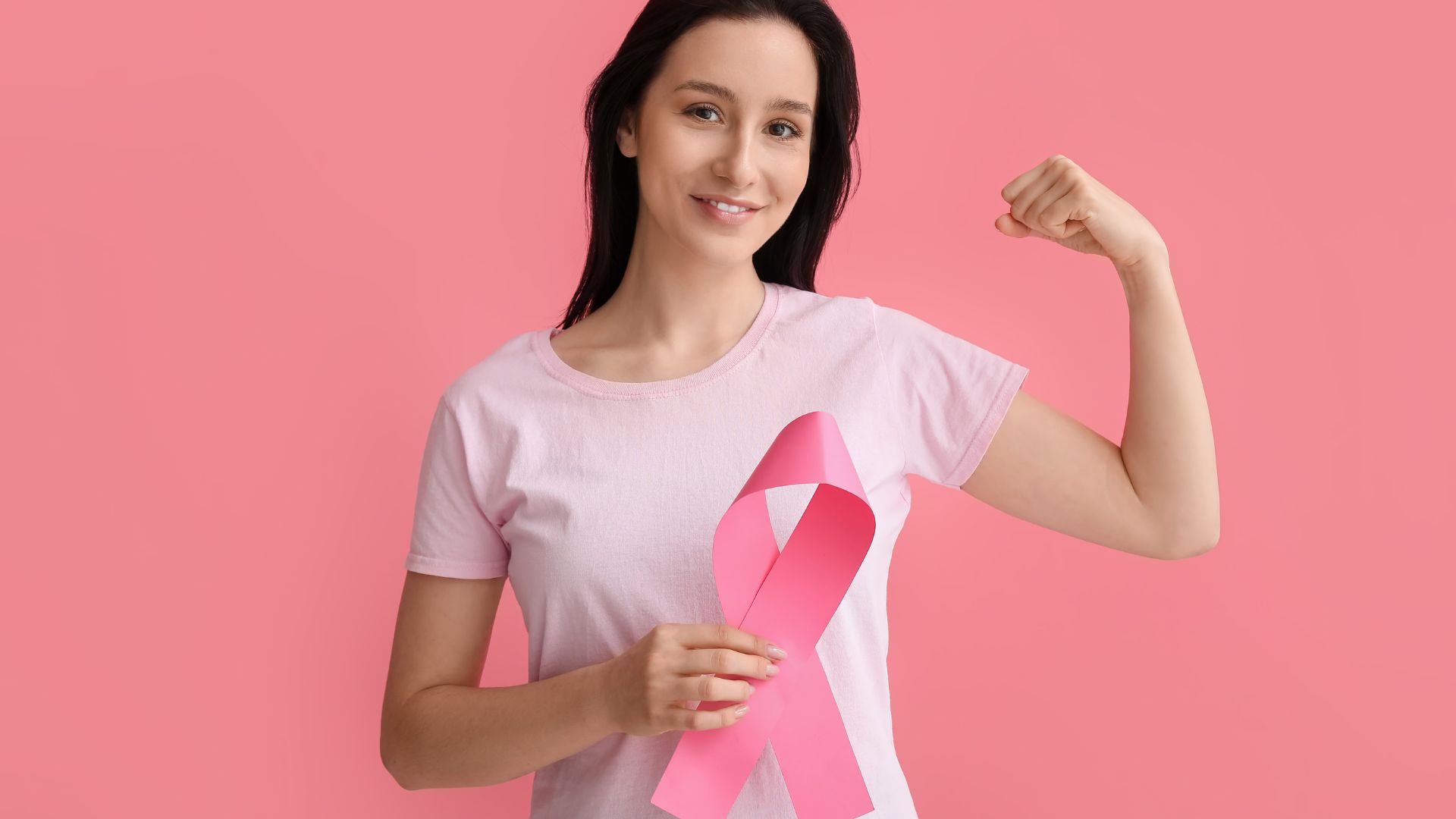

Breast cancer arises when there are changes in breast cells, leading them to multiply uncontrollably and form a tumor. Breast cancer, which is very common in the U.S.A and other parts of the world, is a deadly, terminal disease primarily affecting women aged 50 and above, though it can also affect men in rare cases. Half of the women who develop breast cancer are diagnosed between the ages of 50 and 62. Only a small number of cases are found in women younger than 45.
Causes of Breast Cancer:
Several factors contribute to the risk of breast cancer, including:
1. Reproductive history (early menstruation, before the age of 12)
2. Family history
3. Obesity
4. Advancing age
5. Smoking
6. Inherited mutations in genes such as BRCA2, BRCA1, and CHEK2
7. Alcohol consumption
Symptoms of Breast Cancer:
The symptoms of breast cancer vary among individuals. Some people notice no signs, while others may experience:
A new lump in the breast or armpit that doesn’t disappear
Unusual nipple discharge
Swelling of the breast
Pain in a particular spot on the breast
Redness or swelling of lymph nodes
Persistent breast pain unrelated to the menstrual cycle, affecting only one breast
Cancer, being a terminal disease, involves the uncontrollable growth of abnormal cells in the body. These cells are called cancerous, malignant, or tumor cells.
Why Breast Cancer Awareness in October:
October is celebrated as Breast Cancer Awareness Month in the U.S.A. Citizens are encouraged to participate in a three-day breast awareness walk. This initiative, endorsed by St. Anthony, Minn., not only encourages physical activity but also raises funds, creates awareness, and supports the search for a cure.
As noted by the American Association for Cancer Research, "October is Breast Cancer Awareness Month. It’s a time to reflect on trends in breast cancer research, prevention, and treatment."
According to the National Cancer Institute, about 310,720 women in the United States will be diagnosed with breast cancer in 2024, and approximately 42,250 will die from the disease. It remains the most common non-skin cancer in U.S. women and is second only to lung cancer in terms of cancer-related deaths.
Detecting Breast Cancer Early:
Early detection significantly improves the chances of successful treatment. When breast cancer is found early—while still small and localized—it is easier to treat. Regular checkups and screenings are critical for early detection.
The American Cancer Society (ACS) provides screening guidelines for women at both average and high risk for breast cancer. Women at high risk are advised to have a breast MRI and a mammogram annually, starting at age 30. The ACS does not recommend MRI screening for women with a lifetime breast cancer risk below 15%.
Common Cancer Screening Tests Include:
1. Physical examination: Self-examination or examination by a doctor to check for physical changes, like lumps.
2. Laboratory tests: These can include blood tests, tissue analysis, urine tests, and Pap smears.
3. Imaging tests: Mammograms and other imaging tests that capture internal images of the body.
4. Genetic tests: If there is a family history of hereditary cancer, doctors may recommend genetic testing to assess your risk.
Treatments for Breast Cancer:
There are various treatment options for breast cancer, which may include:
Surgery
Radiation therapy
Chemotherapy
Hormone therapy
Targeted therapy
Immunotherapy
New types of treatments are being tested in clinical trials. In addition to conventional treatments, there is growing interest in herbal solutions and natural remedies as complementary approaches for managing breast cancer.
Herbal Solutions and Natural Remedies for Breast Cancer:
Many people are turning to Complementary and Alternative Medicine (CAM) treatments, including herbal solutions and natural remedies, to help manage symptoms and improve their quality of life. Some herbal remedies may help alleviate side effects from conventional treatments, reduce stress, and support overall well-being.
Here are some popular natural remedies and herbal treatments:
Herbal Teas and Supplements: Herbal teas like green tea, turmeric, and ginger have anti-inflammatory and antioxidant properties. Supplements such as curcumin (from turmeric) and flaxseed oil are believed to support cancer treatment by reducing inflammation and boosting the immune system.
Special Diets: Nutrient-rich, plant-based diets focusing on vegetables, fruits, and whole grains can provide antioxidants and phytochemicals that may help the body fight cancer.
Antioxidant Supplements: Vitamin E, selenium, and beta-carotene are often included in antioxidant therapy to help neutralize free radicals and support the body’s defense mechanisms.
Mind-Body Therapies: Practices such as yoga, meditation, and tai chi can help reduce stress, improve emotional health, and promote relaxation during treatment.
Acupuncture and Biofeedback: These therapies are used to relieve pain, reduce nausea caused by chemotherapy, and improve energy levels.
It is important to note that while some natural remedies have shown promise, they should not replace doctor-approved treatments. Always consult your healthcare provider before incorporating herbal or natural treatments into your cancer care plan.
As we enter October, Breast Cancer Awareness Month in the United States, it is our duty to actively participate in raising awareness, donating to cancer research, and working toward a future where breast cancer is no longer a threat. By combining conventional treatments with herbal solutions, we can provide holistic care that addresses both the physical and emotional challenges of breast cancer. Together, we can strive for a world free from breast cancer.